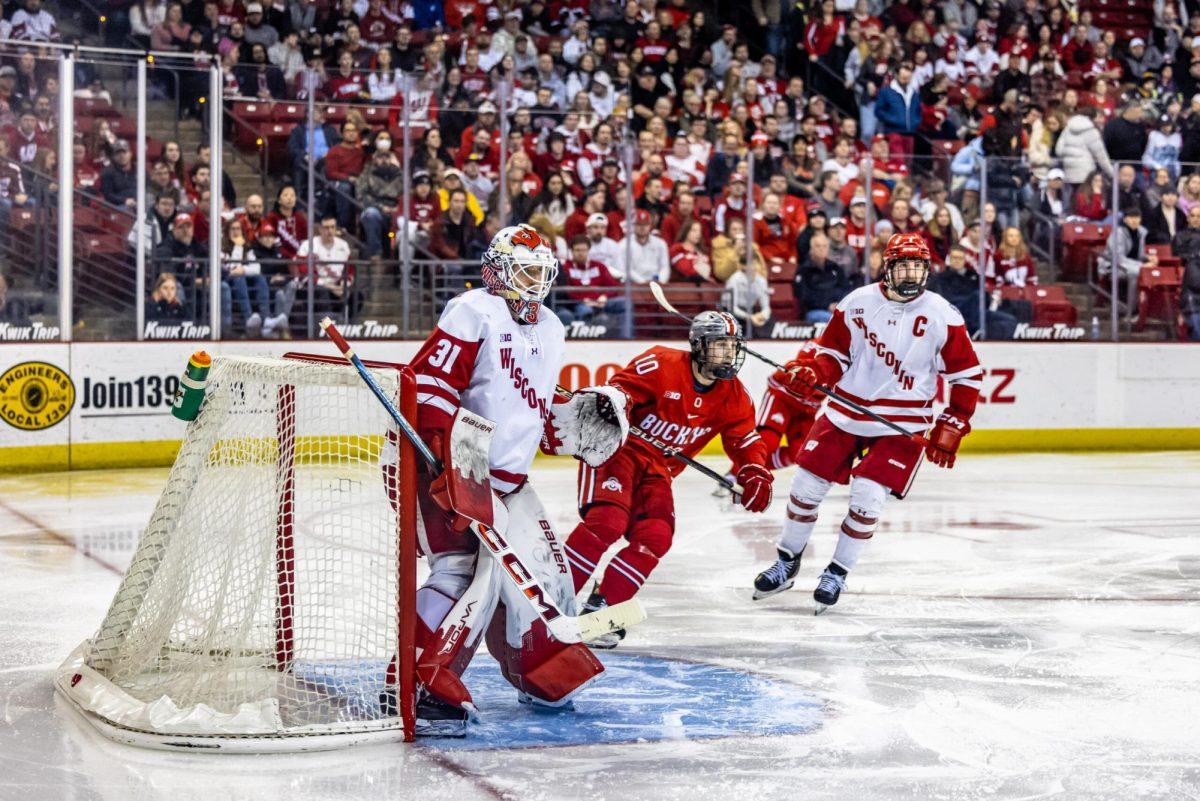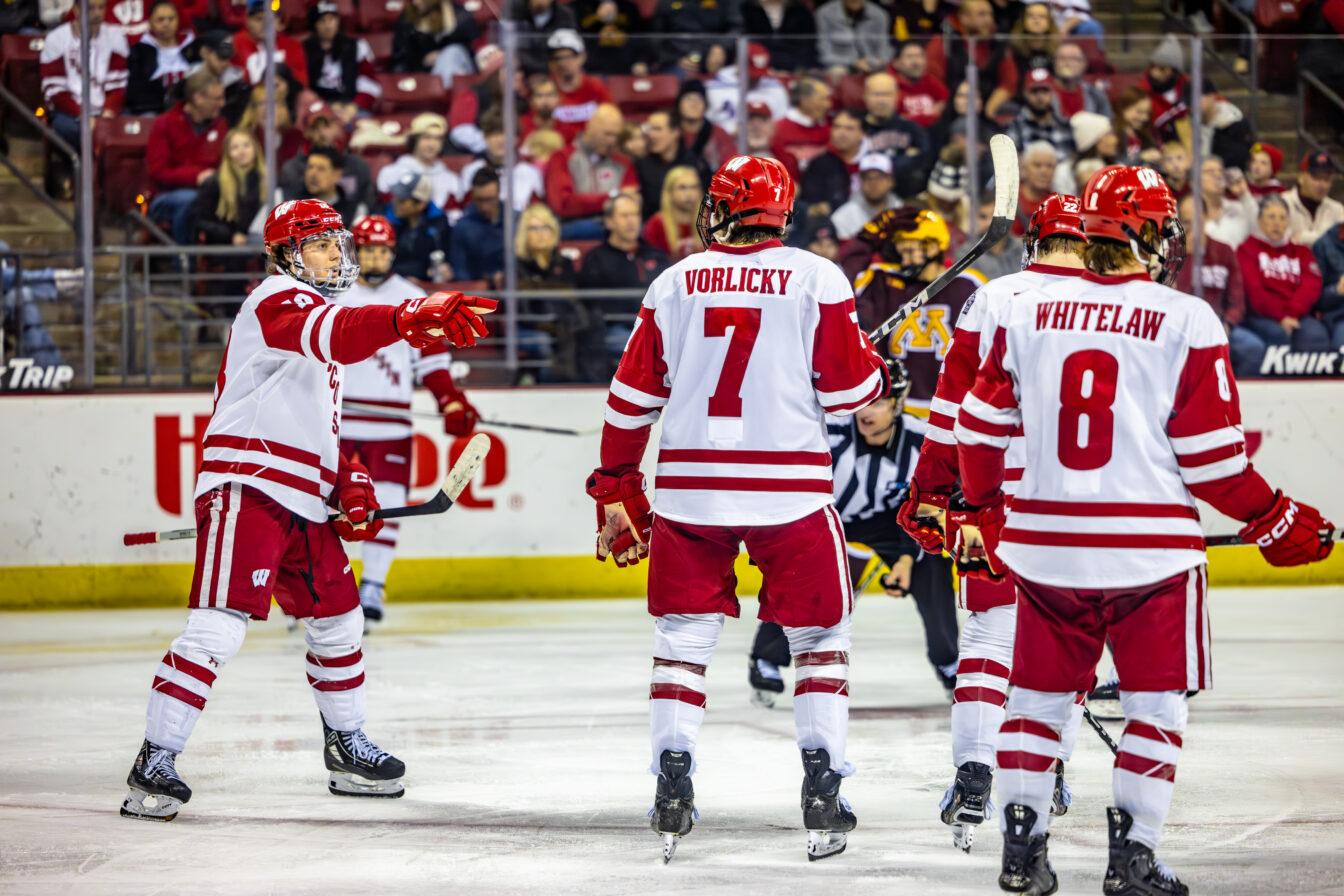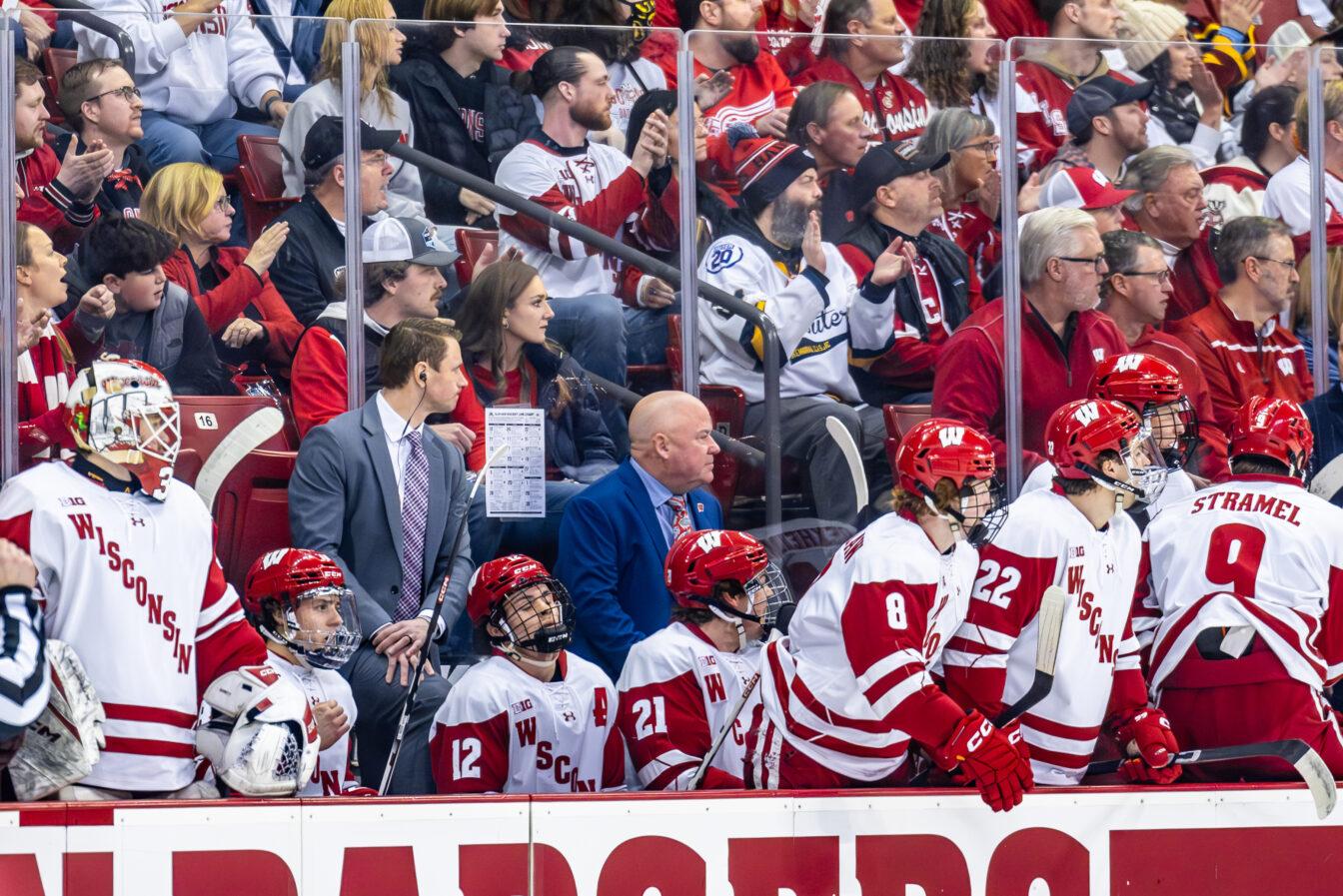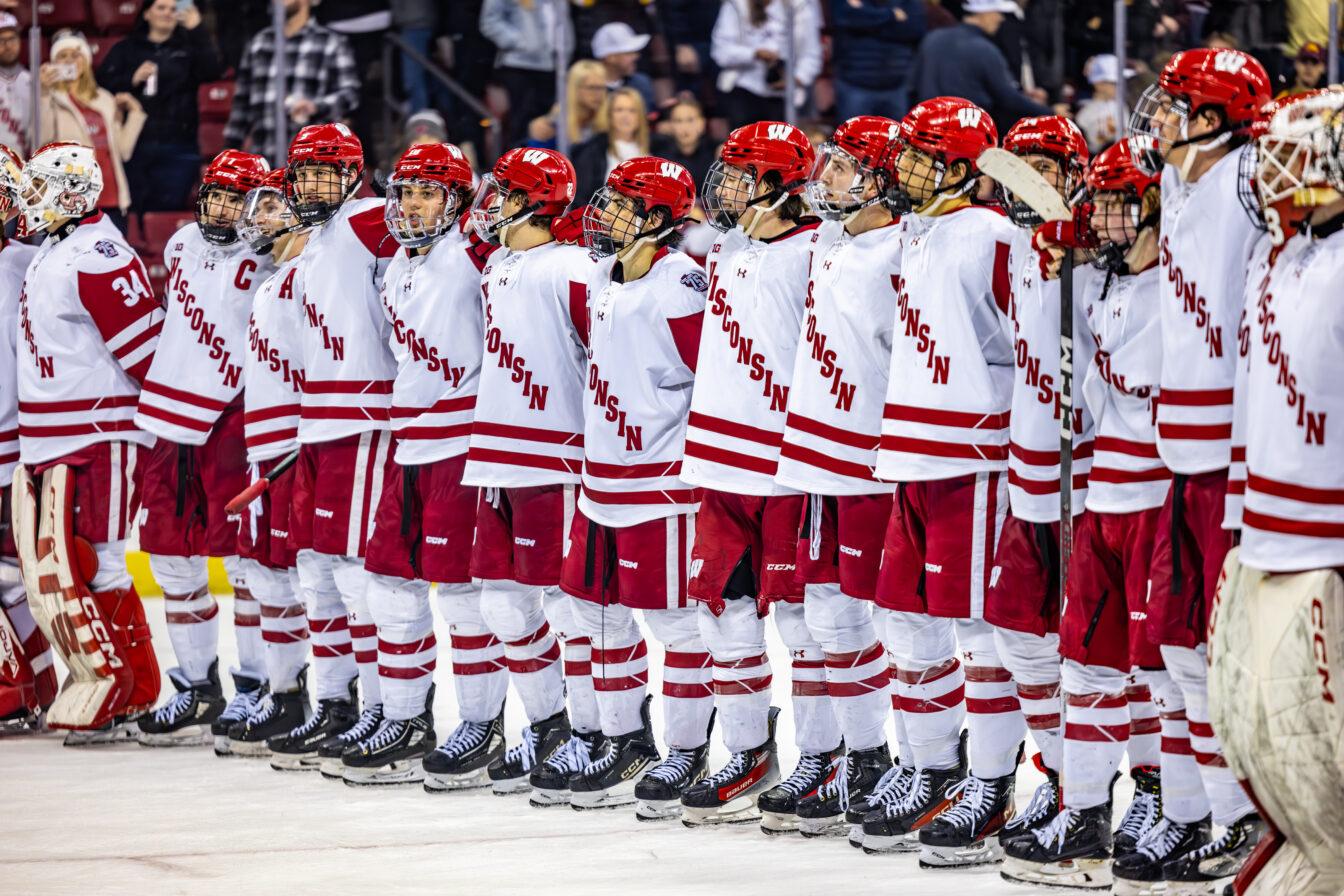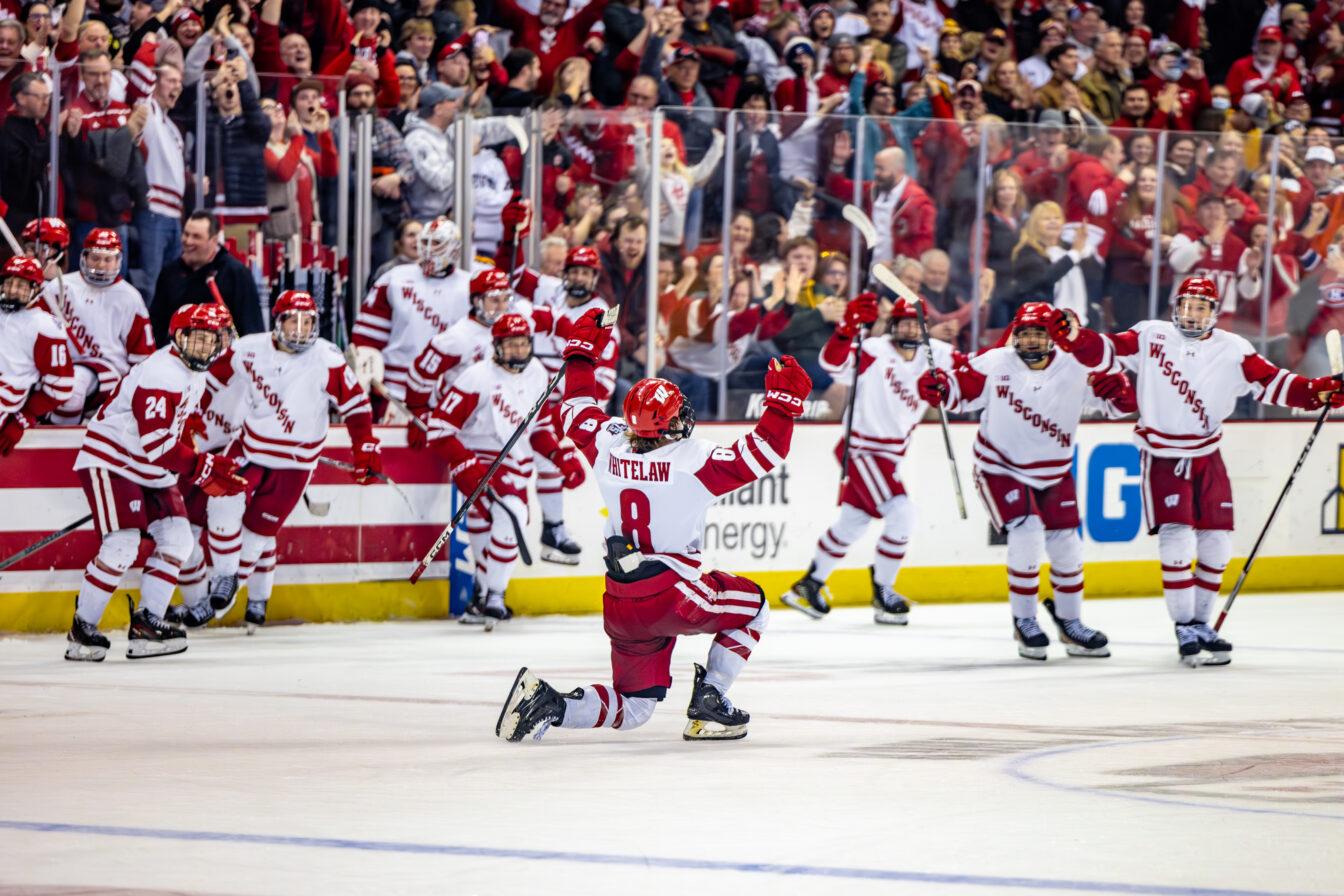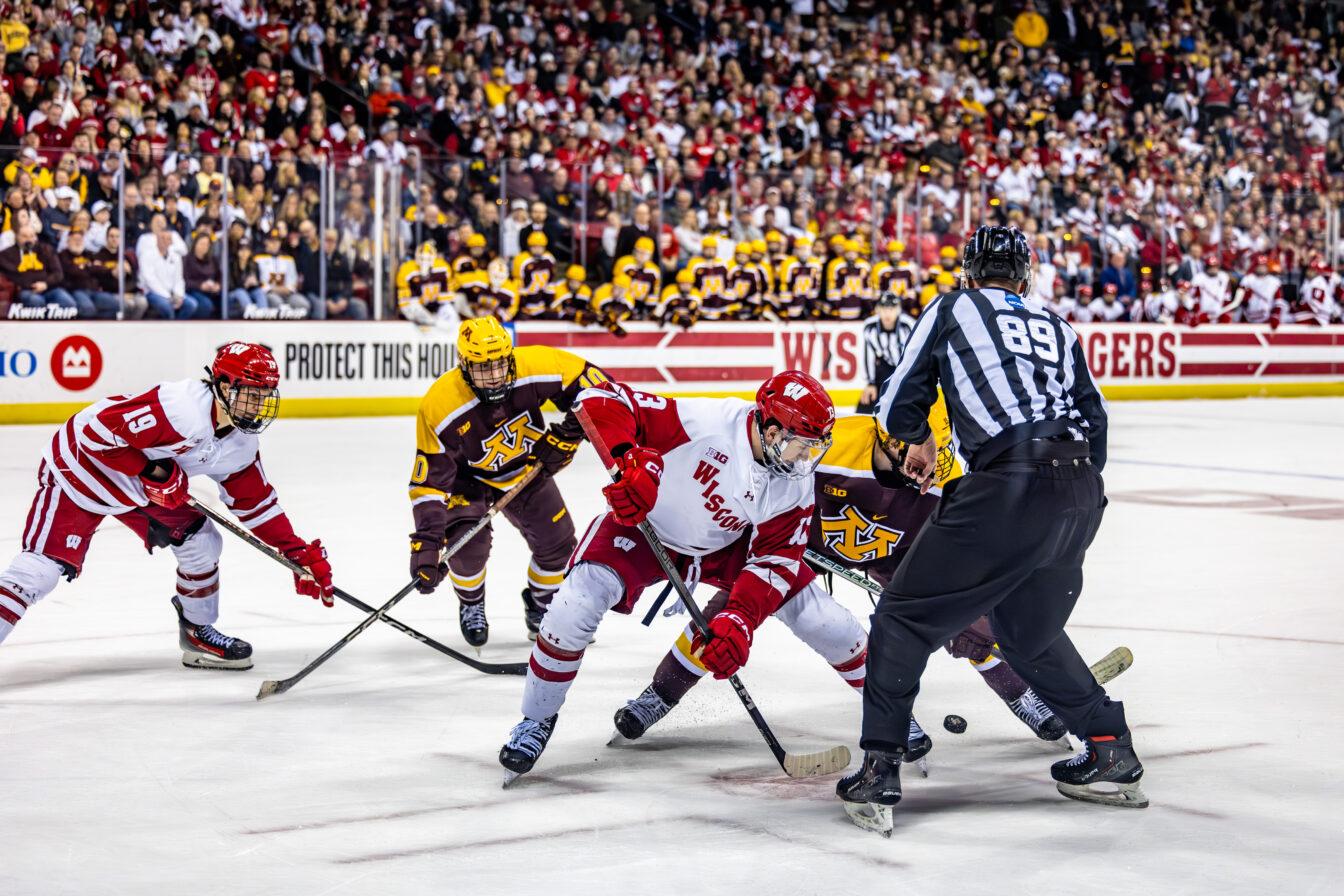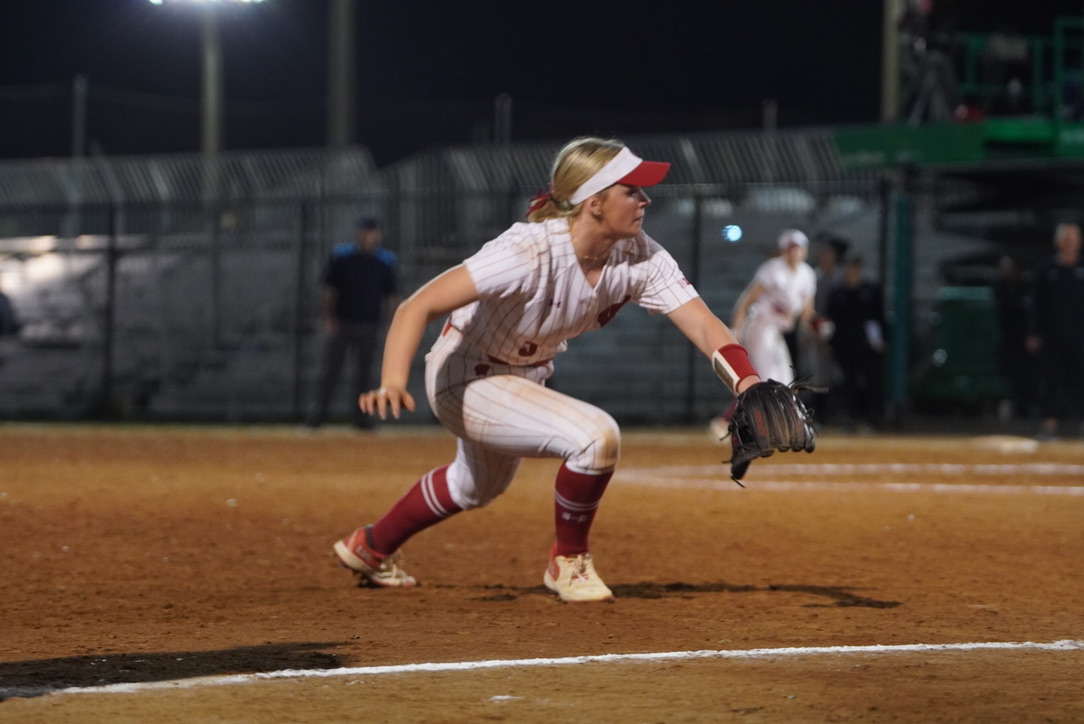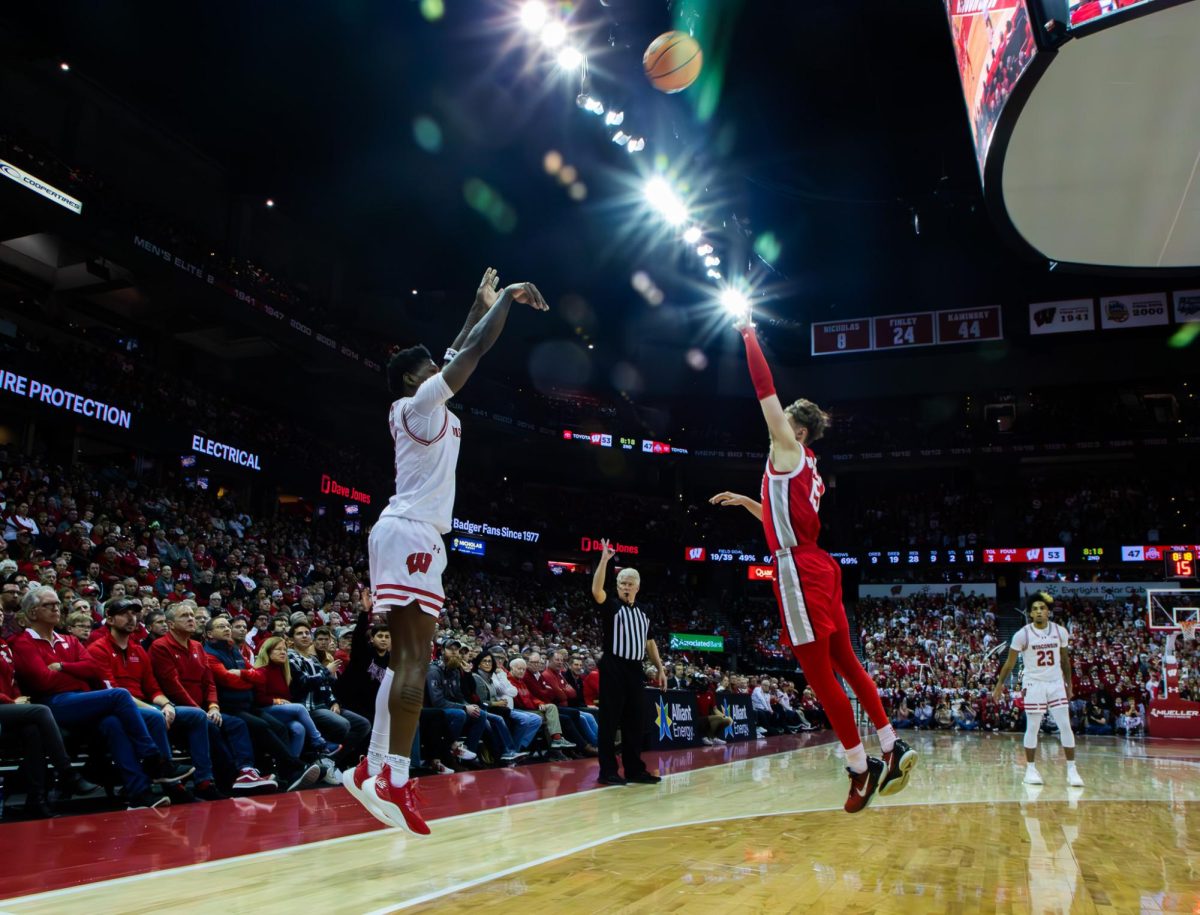Peruse, if you will, the Wisconsin men’s hockey team’s season statistics.
It’s averaging a decent 27.7 shots per game with an average of 2.3 goals per game. The team scored 56 times this year compared to its opponents’ 48.
Not too shabby.
There are seven players with 10 or more points on the season and the duo of sophomore goaltenders each have a .934 and .930 save percentage respectively. Its penalty kill is also working at an 82.4 percent clip.
Everything seems to be in order.
But, wait! Eight for 70 on the power play. That doesn’t seem right. It must be a mistake.
Rest assured, it’s not.
For a team that seems to have everything going for it right now – unbeaten in its last 10 WCHA contests (7-0-3), 10-1-3 in its last 14 after starting the season 1-7-2 – the power play has continued to show meager signs of life.
Until Jan. 25, the Badgers went seven games without scoring a goal on the man-advantage. Facing the only Western Collegiate Hockey Association team with a worse power play percentage – Alaska-Anchorage with 10 percent – junior forward Michael Mersch netted two power play goals on a revamped power play line, scoring the Badgers’ seventh and eighth power play goals of the season and bringing their percentage up to a round 11.4 percent from 9.1 percent before the weekend.
Junior forward Mark Zengerle – who has worked with Mersch on the top power play line all season (except when he was injured) – was quick to defend the struggling man-advantage play, noting the recent success.
That triumph was due, in part, to a new look the Badgers used on the power play. Instead of using a set play, Wisconsin used a hybrid between reading what was happening on the ice and using a set play.
“We were a little static in our old look, but with it spread out a little more, it’ll help us out,” Mersch said. “… Just spreading out and looking for a lot more shots will hopefully get us out of the slump, but we’ve been a little more excited to practice our power play now that we got a few goals last weekend.”
This isn’t the first time the Badgers’ power play has struggled. Last season, Wisconsin finished with only 33 power play goals on 160 opportunities – 20.6 percent.
But operating at an even worse rate this year, head coach Mike Eaves credits a lack of identity as the issue.
“I think it’s just finding the identity for the power play in terms of who is the quarterback, ” Eaves said. “We tried Frankie (Simonelli). We tried Derek (Lee) – now Derek’s not with us because of injury. I think with (former Badger) Justin (Schultz) back there (last year) he was definitely our quarterback. So we’re missing our point guard, we’re missing our quarterback, trying to find that identity.”
Lee quarterbacked the power play last weekend, but after sustaining a concussion in the second period of Saturday night’s 2-1 win, Lee will miss the trip to North Dakota this weekend. Junior defenseman Simonelli will step back in at the point for the Badgers.
In light of the recent success – and snapping their drought – the Badgers have found extra motivation to break down their power play effort.
“We’ve all been talking to each other before we work on it in practice about ‘let’s emphasize shooting the puck more, on getting pucks to the net and good things will happen,'” Mersch said. “So we’ve been doing that a little bit more. Rebounds have popped out and we’ve had good chances there … hopefully that stuff will carry over into the games. Having different looks is really helping us out, giving us new reads and new stuff. It’s exciting to us and giving us more motivation to work well.”
While Wisconsin hopes practice will transition into the game setting, the fact remains it currently sits second to last in the WCHA and 51st nationally (out of 59) with 11.4 percent success rate with the man-advantage.
On their 70 occasions, the Badgers have put 87 shots on net for an average of 1.2 shots per power play. On their opponents’ 85 power play opportunities – scoring on 15 of them – the opposition has put 125 shots on net for an average of 1.47 shots per power play.
As much as anyone can read into those numbers, Eaves maintains a lack of shots isn’t the reason the power play is failing.
“Every power play gets that same criticism when it’s not going well,” Eaves said. “People are saying ‘shoot, shoot.’ But you can shoot five-on-five. What you want to create is a type of shot that’s a little higher percentage with some people in front of the net for it.”
Mersch – who has netted five of the University of Wisconsin’s eight power play goals – credited his personal success as mostly being in the right spot at the right time. Zengerle also added Mersch is simply a “goal scorer” and is “Johnny on the spot” with the puck.
But in the new system, Mersch has had the opportunity to see more shots – which showed on his second power play goal Friday night when he made it 5-1 for UW on a wrister from the face off dot.
“Towards the second half, when we’ve been working on the power play, we’re doing a lot more reading the plays compared to just having set plays,” Mersch said. “But, originally, I think just being in front of the net – you know that’s where you score goals – that’s really the main thing there, just being around the front of the net and putting pucks in.”
As the Badgers hold new hope for their power play, they need to find a consistency on the man-advantage – an 11.4 percent success rate won’t hold up in the WCHA, much less the postseason.
While Eaves doesn’t want to say his team needs to shoot more, Mersch – after much deliberation – concluded in order for Wisconsin to find a new consistency with the man-advantage, they have to keep creating scoring chances – which all comes down to shooting the puck.
“Shooting the puck more, I think it’s going to be huge for me.”








